This article explores effective strategies for locating high-quality auto restoration services in your area, ensuring that you can restore your vehicle to its former glory with ease.
Understanding Auto Restoration Services
Auto restoration is a meticulous process aimed at reviving classic and vintage vehicles. It encompasses a variety of services, including bodywork, engine rebuilding, and interior refurbishing. Understanding these services is essential for car owners who want to ensure their vehicle is restored to its original condition. Whether you’re looking to restore a classic Mustang or a vintage VW Beetle, knowing what to expect can guide your decisions.
Key Factors to Consider When Choosing a Shop
When selecting an auto restoration shop, there are several key factors to consider:
- Reputation: A shop’s reputation often reflects the quality of its work. Look for shops with positive reviews and a solid track record.
- Experience: Experienced technicians are more likely to yield better results. Check how long the shop has been in business.
- Customer Reviews: Online reviews can provide insights into the experiences of previous customers, helping you gauge reliability.
How to Search for Auto Restoration Shops
Finding the right auto restoration shop requires strategic searching. Here are some effective methods:
- Online Search Engines: Utilize search engines to find local restoration shops. Websites like Yelp and Google Reviews can be particularly helpful.
- Social Media: Platforms like Facebook and Instagram often showcase shops’ work, providing visual proof of their skills.
- Automotive Forums: Engaging with fellow car enthusiasts in forums can yield valuable recommendations.
Evaluating Restoration Shops
Once you have a list of potential shops, evaluating them is crucial. Here’s how:
- Visiting the Shop: A personal visit allows you to assess the shop’s environment and professionalism.
- Requesting Quotes: Obtaining quotes from multiple shops helps you compare pricing and services effectively.
Understanding the Restoration Process
Familiarizing yourself with the restoration process can help set realistic expectations. Most projects begin with an initial assessment where technicians evaluate the vehicle’s condition. Understanding the timeline, including key milestones, can keep you informed about progress.
Common Mistakes to Avoid
When seeking auto restoration services, avoiding common pitfalls is vital:
- Insufficient Research: Failing to conduct thorough research can lead to poor choices. Always investigate shops and their reputations.
- Ignoring Warranties: Inquire about warranties on the work performed. A reputable shop should stand behind its services.
Cost Factors in Auto Restoration
Understanding the cost factors involved in auto restoration can help you budget effectively:
- Parts and Materials: The quality of parts can significantly influence the overall cost. Higher quality often leads to better longevity.
- Labor Costs: Labor costs can vary between shops. Understanding hourly rates can help you gauge the total cost accurately.
Building a Relationship with Your Restoration Shop
Establishing a good relationship with your chosen shop can enhance your overall experience:
- Clear Communication: Clearly communicating your vision allows technicians to understand your needs better.
- Trusting the Experts: Once you’ve chosen a shop, trusting the experts can lead to a smoother restoration process.
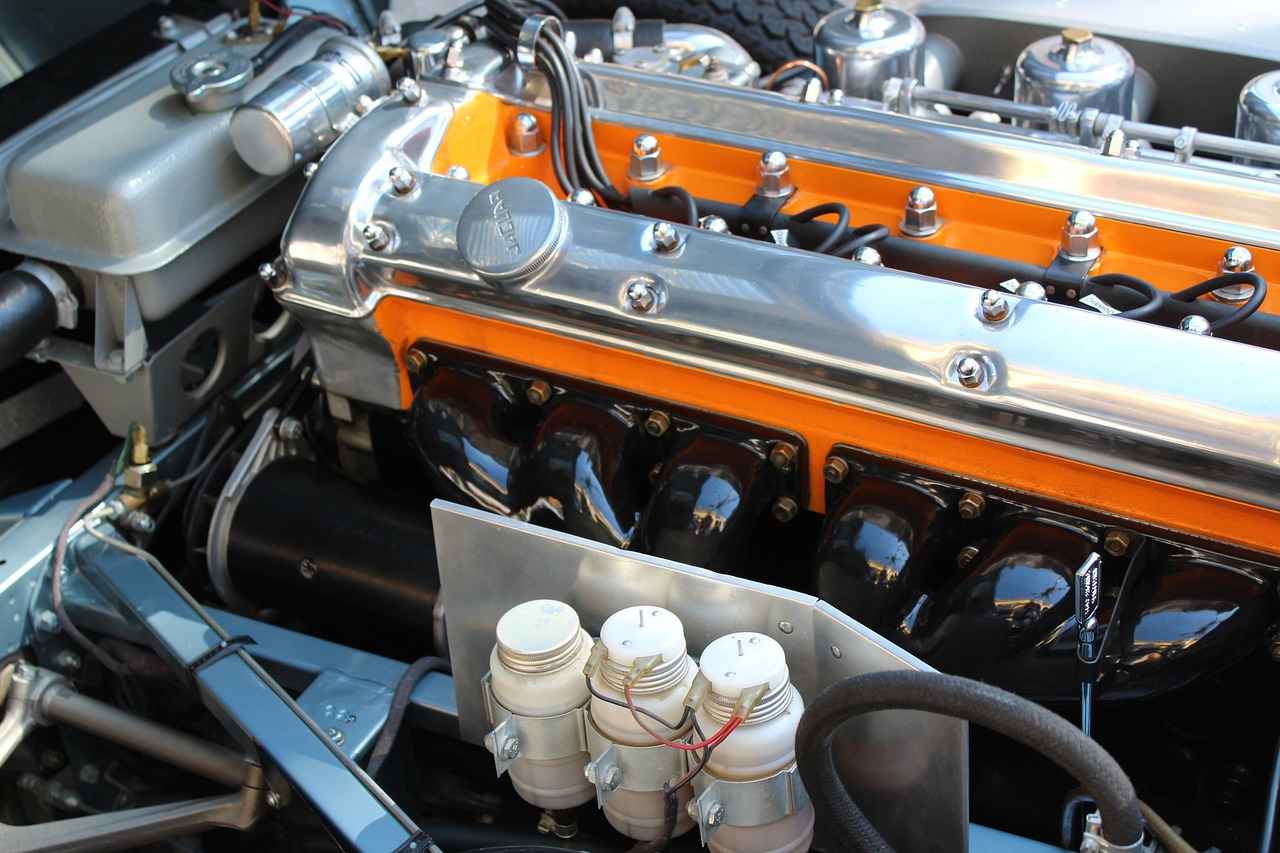
Understanding Auto Restoration Services
Auto restoration is a meticulous process that aims to return classic and vintage vehicles to their original condition or enhance their aesthetic appeal. This involves a range of specialized services tailored to meet the unique needs of each vehicle. For car enthusiasts and owners, understanding these services is crucial to ensure their beloved automobiles receive the best possible care.
- Body Restoration: This service focuses on repairing and refurbishing the vehicle’s exterior. It may include rust removal, dent repair, and repainting. Bodywork is essential for preserving the vehicle’s integrity and appearance.
- Engine Rebuilding: A critical aspect of restoration, engine rebuilding involves disassembling the engine, replacing worn parts, and reassembling it to restore functionality. This process is vital for ensuring the vehicle runs smoothly and efficiently.
- Interior Refurbishing: The interior of a classic car often requires as much attention as the exterior. This service may include reupholstering seats, restoring dashboards, and replacing carpets to bring the interior back to its former glory.
- Electrical System Restoration: Older vehicles may have outdated or malfunctioning electrical systems. Restoration services may involve rewiring, replacing old components, and upgrading systems to ensure safety and reliability.
- Suspension and Brake System Overhaul: Ensuring that the suspension and brake systems are in good working order is crucial for safety. This service may include replacing shocks, springs, and brake components to enhance performance and safety.
The restoration process can vary significantly depending on the vehicle’s condition and the owner’s goals. Some owners may seek a complete restoration to achieve a showroom finish, while others might prefer a more straightforward repair to maintain the vehicle’s originality.
When considering auto restoration services, it is essential to communicate your vision clearly with the restoration shop. This ensures that both parties understand the desired outcome, whether it is a full restoration or specific repairs. A well-defined plan can help avoid misunderstandings and ensure that the restoration meets the owner’s expectations.
Additionally, many restoration shops offer custom services, allowing owners to personalize their vehicles according to their preferences. This could include unique paint colors, custom interiors, or performance upgrades. The ability to tailor the restoration process to individual tastes is one of the most exciting aspects of auto restoration.
For those new to the restoration process, it is advisable to conduct thorough research on potential restoration shops. Look for establishments with a solid reputation and positive customer reviews. Engaging with fellow car enthusiasts on forums or social media can also provide valuable insights into the best local shops.
In summary, understanding the various auto restoration services available is crucial for any car owner looking to revive a classic or vintage vehicle. By knowing what to expect and how to communicate effectively with restoration professionals, you can ensure that your vehicle receives the care it deserves. Whether you are looking to restore a family heirloom or a classic car you’ve always dreamed of owning, the right restoration service can make all the difference in achieving your automotive goals.
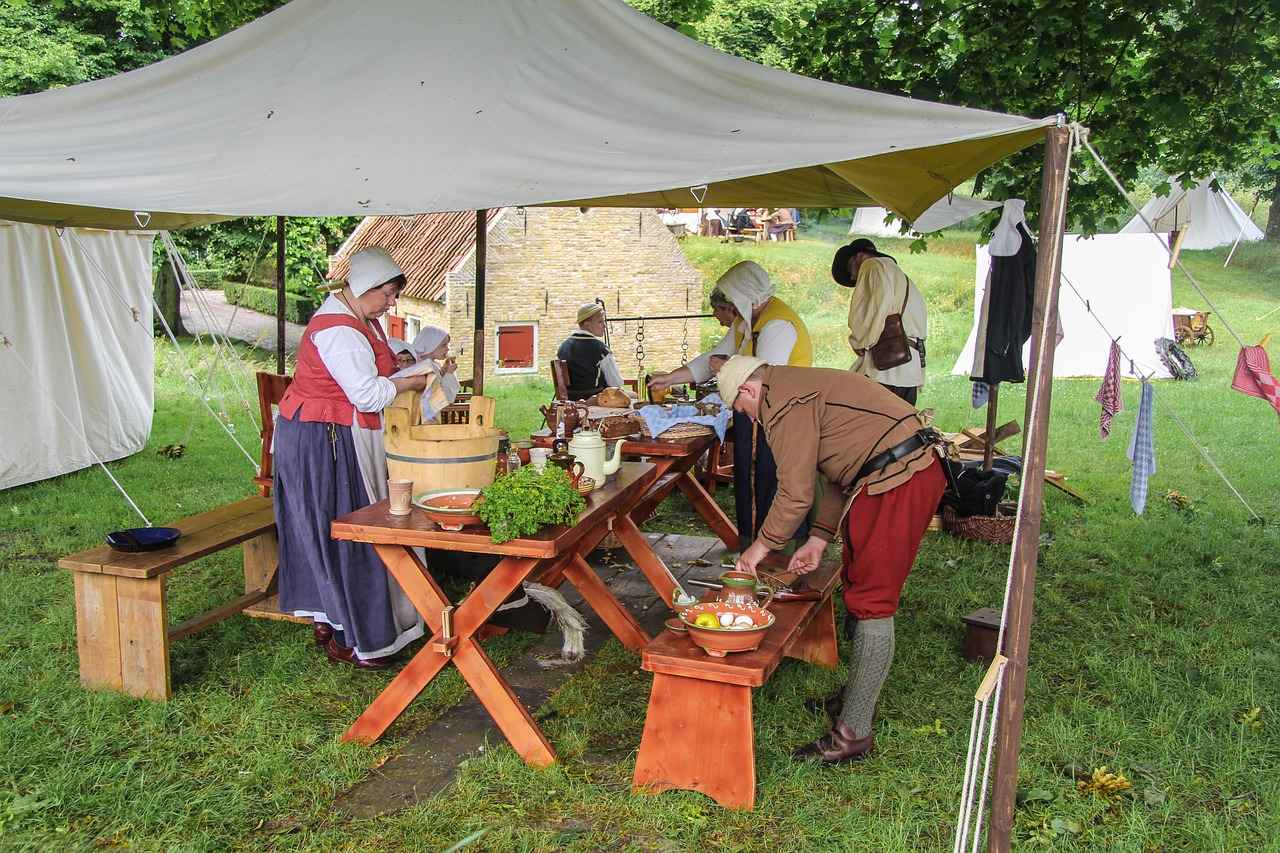
Key Factors to Consider When Choosing a Shop
Choosing the right auto restoration shop is a crucial decision for any car enthusiast or owner looking to bring their vehicle back to life. This process is not just about aesthetics; it involves a significant investment of time, money, and emotional attachment. Therefore, understanding the key factors that influence this choice can lead to a more satisfying restoration experience. Below, we explore essential aspects to consider when selecting an auto restoration shop.
- Reputation: A shop’s reputation often speaks volumes about the quality of work you can expect. Look for shops with a history of satisfied customers and successful projects. You can gauge reputation through word-of-mouth recommendations, online reviews, and industry awards. A well-regarded shop is more likely to deliver the results you desire.
- Experience: Experience in the field is another critical factor. Shops that have been in business for several years typically have encountered a variety of vehicles and restoration challenges. This experience translates to better problem-solving skills and a more refined approach to restoration. Inquire about the technicians’ backgrounds and their specific areas of expertise.
- Customer Reviews: Online reviews and testimonials from previous clients can provide valuable insights into the shop’s reliability and customer service. Websites like Yelp, Google Reviews, and automotive forums can be excellent resources for gathering feedback. Pay attention to recurring themes in reviews, such as quality of work, communication, and turnaround time.
- Services Offered: Different restoration shops may specialize in various aspects of vehicle restoration, including bodywork, engine rebuilding, and interior refurbishing. Assess your specific needs and ensure the shop you choose has the necessary skills and services to meet those requirements. A shop that offers a comprehensive range of services may save you time and hassle in the long run.
- Certifications and Affiliations: Check if the shop has any certifications or affiliations with recognized automotive organizations. These credentials often indicate a commitment to quality and professionalism. Shops that participate in industry associations may also stay updated on the latest techniques and technologies in auto restoration.
Pricing Transparency: Understanding the cost structure is vital. A reputable shop should provide clear and detailed estimates that outline labor costs, parts, and any additional fees. Avoid shops that are vague about pricing, as this can lead to unexpected expenses down the line. Requesting quotes from multiple shops can help you compare pricing and ensure you are getting value for your investment.
Shop Environment: A visit to the shop can offer insights into its operations. Observe the cleanliness, organization, and professionalism of the staff. A well-maintained shop is often indicative of the quality of work you can expect. Additionally, take note of the equipment and tools they use, as modern technology can significantly enhance restoration quality.
Communication: Effective communication is key to a successful restoration project. Choose a shop that listens to your ideas and concerns and is willing to provide updates throughout the process. A shop that values customer input is more likely to deliver results that align with your vision.
In summary, selecting the right auto restoration shop involves careful consideration of several factors, including reputation, experience, customer reviews, services offered, and pricing transparency. By taking the time to evaluate these elements, you can make an informed decision that will lead to a successful restoration project and bring your vehicle back to its former glory.
Reputation and Experience
When it comes to selecting an auto restoration shop, reputation and experience are two of the most critical factors that can significantly impact the quality of service you receive. A shop’s reputation often serves as a reflection of its work quality, and this is especially true in the realm of auto restoration, where precision and expertise are paramount.
Many car owners find themselves overwhelmed with choices when searching for restoration services. However, by focusing on shops with a solid reputation, you can narrow down your options effectively. A shop that has garnered positive reviews and testimonials from previous customers is likely to provide a better experience and more reliable results.
To evaluate a shop’s reputation, consider the following:
- Online Reviews: Websites like Google, Yelp, and specialized automotive forums can provide valuable insights into customer experiences. Look for shops with a high number of positive reviews, as this often indicates consistent quality.
- Word of Mouth: Recommendations from friends, family, or fellow car enthusiasts can be invaluable. Personal experiences often carry more weight than online reviews.
- Industry Recognition: Awards or certifications from automotive associations can also signal a shop’s credibility and expertise.
Experience plays an equally crucial role in determining the quality of restoration work. Shops with seasoned technicians typically deliver better results because they have honed their skills over years of practice. Experienced technicians are more likely to recognize potential issues, apply advanced techniques, and utilize high-quality materials, all of which contribute to a successful restoration project.
When assessing a shop’s experience, consider the following:
- Years in Business: A shop that has been operating for several years often has a proven track record. Longevity in the industry can indicate reliability and expertise.
- Portfolio of Work: Many reputable shops will showcase their past projects, allowing you to see the quality of their work firsthand. A diverse portfolio can demonstrate the shop’s capability in handling various types of restorations.
- Specialization: Some shops may specialize in specific makes or models, which can be beneficial if you own a classic or vintage vehicle. Specialized knowledge often leads to better results.
It’s important to note that while reputation and experience are vital, they should not be the sole criteria for your decision. Engage with the shop directly to gauge their customer service, communication style, and willingness to answer your questions. A shop that values customer satisfaction will likely be more invested in the success of your restoration project.
In summary, when searching for an auto restoration shop, prioritize those with a strong reputation and extensive experience. This combination will significantly enhance your chances of achieving the desired results for your vehicle, ensuring it is restored to its former glory with the care and precision it deserves.
Online Reviews and Testimonials
Online reviews have become an indispensable tool for consumers in today’s digital age, especially when it comes to choosing services like auto restoration. By examining these reviews, potential customers can gain valuable insights into the experiences of others who have utilized the services of a particular shop. This section delves into the importance of online reviews and testimonials, providing guidance on how to interpret them effectively.
- Understanding the Value of Reviews: Online reviews serve as a window into the reliability and quality of a service provider. They reflect the experiences of previous customers, highlighting both positive and negative aspects of the shop. A shop with numerous positive reviews is more likely to deliver satisfactory results, while a pattern of negative reviews can be a red flag.
- Platforms to Consider: When searching for reviews, consider multiple platforms such as Google, Yelp, and social media sites. Each platform may offer different insights, and gathering information from various sources can provide a more comprehensive view of the shop’s reputation.
- Recognizing Authenticity: Not all reviews are created equal. Look for detailed testimonials that provide specific information about the services rendered. Generic comments may lack credibility, while in-depth reviews often indicate genuine experiences.
Key Aspects to Look For in Reviews
When evaluating online reviews, certain elements can help you assess the quality of the auto restoration shop:
| Aspect | What to Look For |
|---|---|
| Service Quality | Comments on the craftsmanship, attention to detail, and overall satisfaction with the restoration work. |
| Customer Service | Feedback regarding the staff’s professionalism, communication, and willingness to address concerns. |
| Timeliness | Reviews mentioning whether the shop completed the work within the promised timeframe. |
| Pricing | Insights into whether customers felt the pricing was fair for the services received. |
How to Use Reviews in Your Decision-Making Process
When you’ve gathered a selection of reviews, it’s crucial to synthesize the information effectively:
1. Compile a list of potential shops based on positive reviews.2. Compare the overall ratings and read both positive and negative feedback.3. Pay attention to recurring themes; if multiple reviews mention the same issue, it’s worth considering.4. Reach out to reviewers if possible, to ask further questions about their experiences.
The Impact of Testimonials
Testimonials can further enhance your understanding of a shop’s capabilities. These often come from satisfied customers and can provide deeper insights into the restoration process. Look for testimonials that detail specific projects, as they can illustrate the shop’s expertise in handling different types of restorations.
In conclusion, online reviews and testimonials are invaluable resources for anyone seeking auto restoration services. They not only help gauge the reliability and competence of a shop but also provide a glimpse into the experiences of those who have gone before you. By taking the time to analyze these reviews carefully, you can make a more informed choice, ensuring that your vehicle receives the care and attention it deserves.
Years in Business
When it comes to selecting an auto restoration shop, one of the most telling indicators of quality and reliability is the number of years a business has been operational. A shop that has been in business for many years often has a proven track record, suggesting stability and expertise in the restoration process. But what does this really mean for you as a consumer? Let’s delve deeper into why the longevity of a shop matters.
Choosing an auto restoration shop is a significant decision, especially when it comes to the care of your vehicle. Here are several reasons why a shop’s years in business can be a critical factor:
- Experience and Skill Development: Over the years, a shop accumulates a wealth of experience. Technicians become adept at handling a variety of restoration challenges, from bodywork to engine rebuilds. This experience often translates into higher quality work.
- Established Reputation: A long-standing business typically has a reputation that precedes it. Customers often share their experiences, and a positive reputation can lead to a steady stream of referrals. This word-of-mouth can be invaluable in the auto restoration industry.
- Proven Track Record: A shop that has been in business for several years will have a portfolio of completed projects. This portfolio can provide potential customers with visual proof of the quality of work they can expect.
- Reliable Customer Service: Long-term businesses often prioritize customer satisfaction. They understand that happy customers are likely to return and recommend their services to others.
- Access to Resources: Established shops typically have better access to quality parts and materials. Over the years, they build relationships with suppliers, ensuring that they can source the best components for your restoration project.
While the years in business is a significant factor, it’s also essential to consider other aspects that can indicate a shop’s reliability:
| Criteria | Why It Matters |
|---|---|
| Certifications | Certifications from recognized automotive organizations can indicate a commitment to quality and ongoing education. |
| Customer Reviews | Online reviews and testimonials can provide insight into the experiences of previous customers and the shop’s reliability. |
| Portfolio of Work | A portfolio showcasing previous projects can help you gauge the quality of work and the types of restorations the shop specializes in. |
| Warranty on Services | A reputable shop will offer warranties on their work, indicating confidence in their services and a commitment to customer satisfaction. |
When you find a shop that has been in business for many years, it’s essential to ask the right questions to ensure they meet your needs:
- How long have you been in business, and what types of vehicles have you worked on?
- Can you provide references or examples of previous work?
- What warranties do you offer on your services?
- How do you handle unexpected issues that may arise during the restoration process?
- What is your typical turnaround time for restoration projects?
By asking these questions, you can better assess whether the shop is a good fit for your specific restoration needs. Remember, the combination of years in business and the quality of services offered is crucial in making an informed decision.
Services Offered
When it comes to auto restoration, different shops may specialize in various aspects of the process, each offering unique services tailored to meet the diverse needs of vehicle owners. Understanding these services is crucial for anyone looking to restore their vehicle, as it can significantly influence the quality and outcome of the restoration project.
Here are some of the key services that auto restoration shops typically provide:
- Bodywork and Painting: This service includes repairing dents, scratches, and rust damage, as well as repainting the vehicle to restore its original finish or to give it a new look. Skilled technicians use advanced techniques and high-quality materials to ensure a flawless finish.
- Engine Rebuilding: For those experiencing performance issues, engine rebuilding is a vital service. This process involves disassembling the engine, replacing worn-out parts, and reassembling it to restore its functionality. A well-rebuilt engine can significantly enhance the vehicle’s performance and longevity.
- Interior Refurbishing: This service focuses on restoring or upgrading the interior of the vehicle, including upholstery repair, dashboard restoration, and installing new carpets. A well-maintained interior can greatly improve the comfort and aesthetic appeal of the vehicle.
- Electrical System Repair: Modern vehicles rely heavily on electrical systems for various functions. Restoration shops often provide services to repair or replace faulty wiring, sensors, and electronic components to ensure everything operates smoothly.
- Suspension and Brake Work: Safety is paramount in auto restoration. Shops often offer suspension and brake services to ensure that the vehicle handles well and stops effectively. This includes replacing shocks, struts, brake pads, and rotors.
- Custom Modifications: Many restoration shops also offer custom modifications for those looking to personalize their vehicles. This can include anything from performance upgrades to aesthetic changes, allowing owners to create a unique vehicle that reflects their style.
When considering which services you need, it’s essential to assess the current condition of your vehicle and identify specific areas that require attention. For instance, if your car has a powerful engine but a deteriorating exterior, focusing on bodywork and painting might be more beneficial. Conversely, if the engine is underperforming, prioritizing engine rebuilding would be wise.
Additionally, it’s helpful to communicate your goals clearly with the restoration shop. Discussing your vision can help the technicians provide tailored recommendations and ensure that the restoration process aligns with your expectations.
In summary, knowing the range of services offered by auto restoration shops empowers vehicle owners to make informed decisions. Whether you need comprehensive restoration or specific repairs, understanding these services can guide your choice, ultimately leading to a successful restoration experience.

How to Search for Auto Restoration Shops
Finding the right auto restoration shop can feel overwhelming, especially with the variety of options available. However, employing a strategic approach can streamline your search and help you discover the best shops in your area. Below are several effective methods for finding reputable auto restoration services.- Utilize Online Search Engines
- Explore Online Directories
- Leverage Social Media
- Visit Automotive Forums
- Ask for Recommendations
Start your search by using popular search engines like Google. Simply typing “auto restoration shops near me” can yield a list of local businesses. Pay attention to the Google My Business listings, which often include customer ratings, hours of operation, and contact information. This can help you quickly assess which shops are worth considering.
Websites such as Yelp, Angie’s List, and Yellow Pages provide extensive listings of auto restoration shops. These platforms often include customer reviews and ratings that can give you insights into the quality of service provided. Look for shops with high ratings and read through recent reviews to gauge customer satisfaction.
Social media platforms like Facebook and Instagram can be invaluable resources. Many restoration shops showcase their work through posts and stories. Additionally, community groups or forums on these platforms often have discussions about local services. Engaging with these communities can lead to personal recommendations.
Automotive forums such as Reddit’s r/cars or specialized car enthusiast forums can provide insights into reputable restoration shops. Members often share their personal experiences and recommendations, which can lead you to trustworthy options.
Word-of-mouth referrals can be one of the most reliable ways to find a great auto restoration shop. Reach out to friends, family, or colleagues who have had restoration work done on their vehicles. Their firsthand experiences can lead you to shops that are known for quality work.
Evaluating Your OptionsOnce you have compiled a list of potential auto restoration shops, it’s essential to evaluate them thoroughly. Here are some key factors to consider:
- Check for Certifications
- Review Their Portfolio
- Inquire About Warranty and Guarantees
- Visit the Shop
Look for shops that have certified technicians. Certifications from recognized organizations can indicate that the staff is well-trained and knowledgeable about the latest restoration techniques.
A reputable shop should have a portfolio showcasing their past work. This can include before-and-after photos of previous restorations. Reviewing their portfolio will give you a better idea of their capabilities and the quality of their work.
Ask if the shop offers any warranties or guarantees on their work. A shop that stands behind its services is more likely to deliver satisfactory results. This can also provide you with peace of mind regarding your investment.
Whenever possible, visit the shop in person. This allows you to assess the cleanliness and organization of the workspace, which can be indicative of their professionalism. Engaging with the staff can also provide insights into their customer service approach.
Final ThoughtsSearching for the right auto restoration shop involves a combination of online research, community engagement, and personal evaluation. By utilizing multiple resources and thoroughly assessing your options, you can find a shop that meets your restoration needs and delivers quality results. Remember to take your time and choose wisely, as the right shop can make all the difference in restoring your vehicle to its former glory.
Online Search Engines and Directories
In today’s digital age, finding reliable auto restoration shops has become easier than ever, thanks to the power of online search engines and directories. These tools allow you to access a wealth of information at your fingertips, enabling you to make informed decisions about where to take your vehicle for restoration.
When you start your search, simply entering keywords like “auto restoration near me” or “best restoration shops in [your location]” into a search engine can generate a comprehensive list of local services. This initial step is crucial as it opens up a variety of options, allowing you to compare different shops based on their offerings, expertise, and customer feedback.
One of the most significant advantages of using online directories is the ability to read customer reviews. Websites such as Yelp, Google Reviews, and Angie’s List provide platforms where past customers share their experiences. These reviews often highlight the quality of work, customer service, and overall satisfaction. By taking the time to read through these reviews, you can gauge the reputation of each shop and narrow down your choices.
Additionally, many directories categorize shops based on their specialties, such as bodywork, engine rebuilding, or interior refurbishing. This categorization makes it easier for you to find a shop that aligns with your specific restoration needs. For example, if you are looking to restore a classic car’s interior, you can filter your search to find shops that excel in that area.
Moreover, online directories often feature contact information, including phone numbers and email addresses, which makes reaching out to potential shops straightforward. You can ask questions, request quotes, or even schedule consultations directly from the information provided. This direct line of communication is essential for establishing a rapport with the shop before committing to any services.
Another useful feature of many online directories is the ability to view before-and-after photos of previous restoration projects. These images can give you a visual representation of the shop’s capabilities and the quality of their work. If a shop has a portfolio showcasing impressive restorations, it can serve as a strong indicator of their expertise and attention to detail.
In addition to search engines and directories, consider leveraging social media platforms to enhance your search. Many restoration shops maintain active profiles on platforms like Facebook and Instagram, where they share updates, promotions, and customer testimonials. Engaging with these platforms can offer further insights into the shop’s culture and customer interactions.
Lastly, while online resources are invaluable, it is also beneficial to combine digital research with local knowledge. Asking friends, family, or local car clubs for recommendations can lead to discovering hidden gems that may not appear at the top of search results. Personal referrals often come with trusted insights, which can be incredibly valuable in your search for the right restoration shop.
In summary, utilizing online search engines and directories is a powerful strategy for identifying and evaluating local auto restoration shops. By leveraging reviews, categorization, and visual portfolios, you can make an informed decision that aligns with your restoration needs. Remember to complement your online research with personal recommendations to ensure you find the best shop for your vehicle.
Social Media and Forums
In today’s digital age, the role of social media platforms and specialized automotive forums has become increasingly significant in the quest for reputable auto restoration shops. Car enthusiasts often turn to these online communities not only for advice but also for recommendations based on real experiences. Leveraging these resources can vastly enhance your search and help you connect with the right professionals for your restoration project.
- Engagement with Fellow Enthusiasts: Social media platforms like Facebook, Instagram, and Reddit host vibrant communities of car lovers. These spaces allow users to share their restoration journeys, post questions, and offer insights based on personal experiences. Engaging with these communities can provide you with invaluable information about shops that have a proven track record of quality work.
- Real-Time Recommendations: Unlike traditional sources, social media offers real-time feedback. If you post a query about local restoration shops, you may receive immediate responses from fellow car enthusiasts who have firsthand knowledge of reliable services. This instant interaction can save you time and help you make informed decisions quickly.
- Visual Insights: Platforms like Instagram and Pinterest are rich in visual content. You can find before-and-after photos of restoration projects, showcasing the quality of work done by various shops. This visual evidence can be a deciding factor when choosing a shop, as it allows you to see the results of their craftsmanship.
- Automotive Forums: Websites dedicated to automotive discussions, such as CarGurus and Reddit’s r/cars, provide a treasure trove of information. Users often share detailed reviews of their experiences with different shops, discussing aspects like customer service, pricing, and the quality of materials used. These forums can help you compile a list of potential shops to consider.
Finding Specialized Groups
Within social media and forums, you can find specialized groups that cater specifically to your type of vehicle or restoration project. For instance, if you own a classic Mustang, joining a dedicated Mustang restoration group can connect you with individuals who have gone through similar experiences. These niche communities often have members who are willing to share their recommendations for shops that excel in specific types of restorations.
| Platform | Type of Information | Benefits |
|---|---|---|
| Facebook Groups | Community advice, shop reviews | Real-time feedback, local recommendations |
| Visual showcases of restoration work | Quality assessment through photos | |
| In-depth discussions, personal stories | Diverse opinions and experiences | |
| Automotive Forums | Detailed reviews, expert insights | Access to a wealth of knowledge |
Networking Opportunities
Participating in these online communities can also open doors to networking opportunities. You may come across local car meets or events where restoration shops showcase their work. Attending these events allows you to meet shop owners and technicians in person, providing a chance to ask questions directly and gauge their expertise.
In conclusion, utilizing social media platforms and automotive forums is an effective strategy for finding reputable auto restoration shops. By engaging with fellow enthusiasts, tapping into real-time recommendations, and accessing visual insights, you can make informed decisions that lead to successful restoration projects. Remember to actively participate in discussions and share your own experiences to contribute to the community, as this reciprocal exchange can benefit everyone involved in the automotive restoration journey.
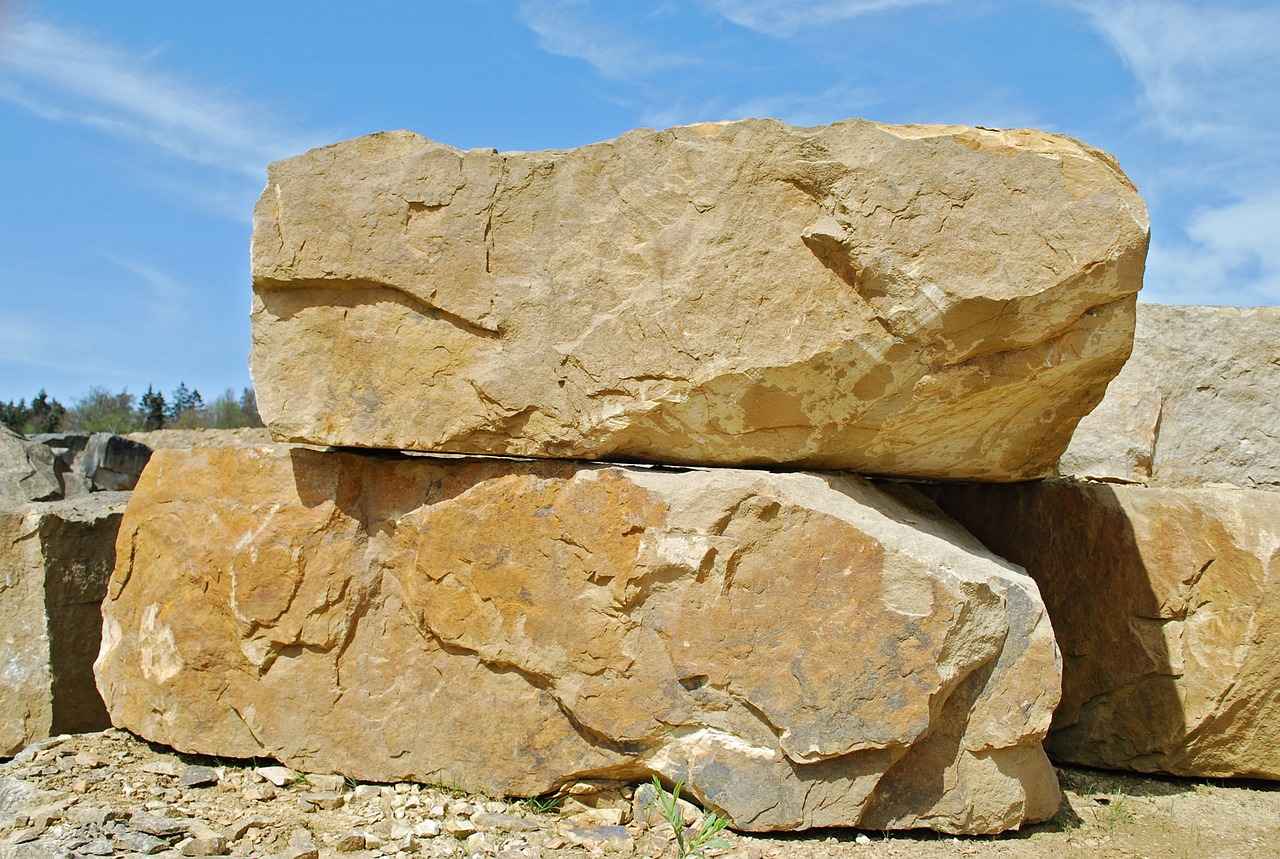
Evaluating Restoration Shops
When it comes to finding the right auto restoration shop, the evaluation process is essential. After compiling a list of potential candidates, it is crucial to assess each shop thoroughly to ensure that you make an informed choice. This evaluation can significantly narrow down your options and lead you to the best restoration service for your vehicle.
- Visiting the Shop: A personal visit to the shop is one of the most effective ways to gauge its suitability. During your visit, pay attention to the organization and cleanliness of the workspace. A well-maintained shop often reflects the quality of work you can expect. Look for signs of professionalism, such as well-organized tools and equipment, as these can indicate the level of care the technicians put into their work.
- Requesting Quotes: Obtaining quotes from multiple shops is an essential step in the evaluation process. This not only allows you to compare prices but also helps you understand what services are included. Be sure to ask detailed questions about the estimates to ensure that you are comparing apples to apples. A transparent shop will provide a breakdown of costs, including labor, parts, and any additional fees.
- Checking Certifications: It is important to check whether the shop has the necessary certifications and licenses. Certified technicians are often more skilled and knowledgeable about restoration practices, which can lead to better results. Look for shops that are members of recognized automotive organizations, as this can be a sign of professionalism and commitment to quality.
- Reviewing Customer Feedback: Customer reviews and testimonials are invaluable resources when evaluating restoration shops. Websites like Yelp, Google Reviews, and automotive forums can provide insights into previous customers’ experiences. Look for patterns in the feedback—positive reviews about quality and service can indicate a reliable shop, while consistent negative comments may be red flags.
- Assessing Communication: Effective communication is key to a successful restoration project. During your evaluation, consider how the shop staff interacts with you. Are they responsive to your inquiries? Do they take the time to explain the restoration process? A shop that values clear communication is likely to be more attentive to your needs throughout the project.
- Inquiring About Warranties: A reputable restoration shop should stand behind its work. Inquire about any warranties or guarantees offered on the services provided. Understanding the terms and conditions of these warranties can give you peace of mind and protect your investment.
Understanding the Shop’s Specialties
Different restoration shops may have varying specialties, such as classic car restoration, custom builds, or collision repair. It is essential to choose a shop that aligns with your specific needs. For instance, if you have a vintage car that requires specialized knowledge, look for a shop with a proven track record in classic car restoration.
| Shop Name | Specialty | Years in Business | Customer Rating |
|---|---|---|---|
| Classic Car Restorations | Vintage Cars | 15 | 4.8 |
| Custom Auto Works | Custom Builds | 10 | 4.5 |
| Precision Collision Repair | Collision Repair | 20 | 4.7 |
By considering these factors and conducting a thorough evaluation, you can confidently choose the right auto restoration shop for your needs. This careful selection process not only ensures quality workmanship but also enhances your overall experience throughout the restoration journey.
Visiting the Shop
When it comes to selecting an auto restoration shop, one of the most critical steps is conducting a personal visit. This allows you to gain firsthand experience of the shop’s environment and operations, which can be invaluable in assessing the quality of work you can expect. A physical inspection provides an opportunity to evaluate various aspects that can significantly influence your decision.
- Environment: The overall cleanliness and organization of the shop can be telling. A well-maintained space often indicates a professional attitude towards work. Look for organized tools, clean work areas, and a systematic approach to vehicle restoration.
- Professionalism: Observe how the staff interacts with customers and each other. Polite, knowledgeable, and attentive employees are usually a good sign of a shop that values customer service and quality workmanship.
- Equipment: Take note of the tools and equipment available. Modern, well-maintained machinery can enhance the quality of restoration work and indicates that the shop invests in its capabilities.
- Project Examples: Ask to see examples of previous work. Many shops will have a portfolio of completed projects, which can give you an idea of their skills and the types of vehicles they specialize in.
Additionally, engaging with the staff during your visit can provide crucial insights. Here are some questions to consider asking:
1. What is your experience with my specific vehicle make and model?2. Can you walk me through your restoration process?3. What warranties or guarantees do you offer on your work?4. How do you handle unexpected issues that arise during restoration?
These questions can help you gauge the shop’s expertise and approach to customer service.
Another important aspect to consider is the shop’s location. Proximity can be a significant factor, especially if you need to visit frequently during the restoration process. A local shop can offer convenience, making it easier to check on progress and communicate any changes in your expectations.
It’s also wise to observe the clientele. A shop that attracts a diverse range of customers, including classic car enthusiasts, often indicates a solid reputation within the community. You might even consider talking to other customers in the waiting area, as they can provide real-time feedback about their experiences.
Furthermore, while visiting the shop, take note of the overall atmosphere. A welcoming environment can enhance your comfort level, making it easier to discuss your project. If the staff seems rushed or disinterested, it may be a red flag regarding their commitment to customer satisfaction.
In summary, a personal visit to an auto restoration shop is a vital step in ensuring that you choose the right place for your project. By evaluating the environment, professionalism, and overall organization of the shop, you can make a more informed decision. This visit not only allows you to assess the quality of work you can expect but also enables you to establish a rapport with the technicians who will be handling your vehicle. Taking the time to visit can ultimately lead to a more satisfying restoration experience, ensuring your vehicle is in capable hands.
Requesting Quotes and Estimates
When it comes to restoring your vehicle, obtaining quotes and estimates from multiple auto restoration shops is a crucial step. This process not only helps you compare pricing but also allows you to assess the services offered by each shop. By doing so, you can make an informed decision that aligns with your budget and specific needs.
Requesting quotes is more than just a simple ask; it’s a strategic approach to ensure you receive the best value for your restoration project. Here’s a detailed breakdown of why this practice is essential and how to do it effectively.
- Price Comparison: Different shops may offer varying prices for similar services. By gathering multiple quotes, you can identify a fair market rate.
- Service Evaluation: Not all restoration shops provide the same level of service. Some may include additional services in their quotes, such as aftercare or warranty options.
- Budget Management: Understanding the pricing landscape helps you manage your budget effectively, ensuring you don’t overspend on your restoration project.
When reaching out to restoration shops for quotes, consider the following steps:
- Be Specific: Clearly outline the services you need. Whether it’s bodywork, engine restoration, or interior refurbishment, providing detailed information helps shops give accurate estimates.
- Ask for Itemized Estimates: Request itemized quotes that break down costs for parts, labor, and any additional fees. This transparency allows you to understand exactly what you are paying for.
- Inquire About Timelines: Knowing how long the restoration will take is crucial. Ask each shop for their estimated timeline to compare not just costs but also the duration of the project.
When reviewing quotes, keep these factors in mind:
- Quality of Parts: Inquire about the quality of parts being used. Cheaper parts may save you money upfront but could lead to higher costs down the line due to replacements.
- Labor Rates: Understand the shop’s hourly labor rates. Some shops may have lower quotes but charge higher labor rates, which can affect the overall cost.
- Warranties and Guarantees: A reputable shop should offer warranties on their work. This not only protects your investment but also indicates confidence in their services.
Today, many shops use technology to streamline the quoting process. Consider using online platforms and apps that allow you to request quotes from multiple shops simultaneously. This can save you time and provide a broader perspective on pricing and services available in your area.
After receiving quotes, don’t hesitate to reach out for clarification. Here are some follow-up questions that can help:
- Can you explain the differences between your quote and others I’ve received?
- What specific services are included in the quoted price?
- Are there any potential additional costs I should be aware of?
By diligently requesting and evaluating quotes from various auto restoration shops, you empower yourself to make a well-informed decision. This thorough approach not only ensures that you receive the best possible price but also helps you select a shop that meets your quality standards and restoration needs.
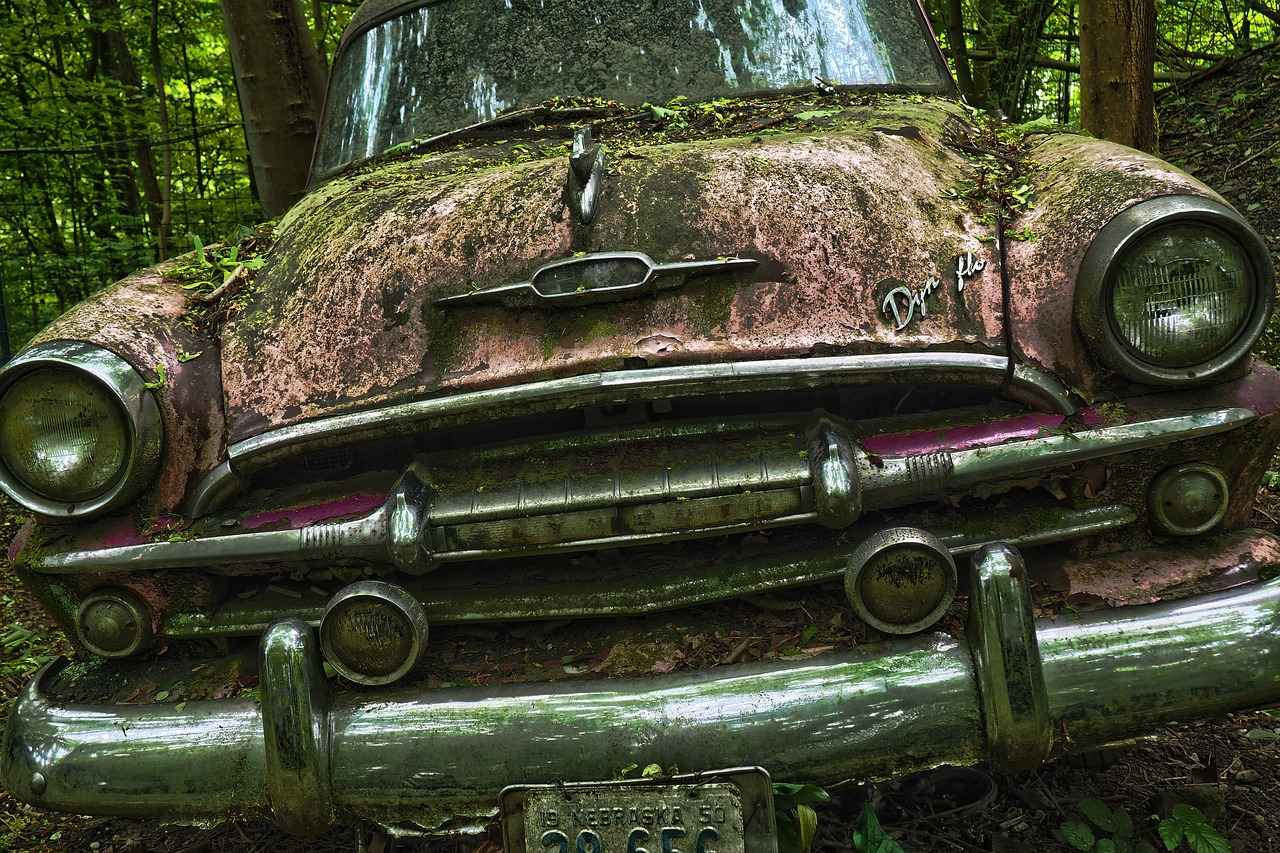
Understanding the Restoration Process
When it comes to restoring a vehicle, understanding the restoration process is crucial for any car owner. This knowledge not only empowers you to communicate effectively with restoration shops but also helps in setting realistic expectations regarding the timeline, costs, and the overall outcome of the project. The restoration process can be intricate, involving multiple stages, each requiring specific attention and expertise.
Initial Assessment and Consultation
The journey of vehicle restoration typically begins with an initial assessment. During this phase, technicians will conduct a thorough evaluation of your vehicle’s condition. This includes checking for rust, damage, and the overall integrity of the vehicle. It’s essential to be present during this consultation, as it allows you to express your vision for the restoration.
- Discuss Your Goals: Clearly articulate what you want—whether it’s a full restoration to original specifications or a custom modification.
- Ask Questions: Inquire about the shop’s approach to restoration and the techniques they use.
- Understand the Limitations: Not all vehicles can be restored to their original condition, and being aware of this can help in setting realistic expectations.
Timeline and Milestones
Understanding the timeline for your restoration project is vital. Restoration can take anywhere from a few weeks to several months, depending on the extent of the work needed. A well-structured timeline should include key milestones such as:
| Milestone | Estimated Time Frame |
|---|---|
| Initial Assessment | 1 Week |
| Parts Sourcing | 2-4 Weeks |
| Bodywork and Painting | 4-8 Weeks |
| Mechanical Restoration | 3-6 Weeks |
| Final Inspection | 1 Week |
By having a clear understanding of the timeline, you can stay informed about the progress of your project and anticipate any potential delays.
Budgeting for Restoration
Another critical aspect of the restoration process is budgeting. Understanding the cost factors involved can help you avoid unexpected expenses. It’s wise to discuss the estimated costs during your initial consultation, including:
- Labor Costs: These can vary significantly based on the shop’s experience and the complexity of the restoration.
- Parts and Materials: High-quality parts can be more expensive but are often worth the investment for durability and performance.
- Unexpected Repairs: Always budget for unforeseen issues that may arise once the restoration begins.
Final Thoughts on the Restoration Process
Being well-informed about the auto restoration process not only enhances your communication with restoration shops but also equips you with the knowledge to make informed decisions. By understanding the stages involved, timelines, and budgeting, you can ensure a smoother restoration journey. This preparation will allow you to enjoy the process and ultimately drive away in a vehicle that meets your expectations.
Initial Assessment and Consultation
When embarking on the journey of restoring a vehicle, one of the most critical stages is the . This phase sets the foundation for the entire restoration process and ensures that both the car owner and the restoration technicians are on the same page regarding the vehicle’s condition and the desired outcomes.
During the initial assessment, experienced technicians will conduct a thorough evaluation of your vehicle. This involves examining various components, including:
- Body Condition: Inspecting for rust, dents, and paint deterioration.
- Engine Performance: Assessing the engine’s functionality and identifying any mechanical issues.
- Interior Quality: Evaluating the state of the upholstery, dashboard, and other interior elements.
- Electrical Systems: Checking the wiring, lights, and electronic components for any faults.
Once the assessment is complete, the technician will discuss various restoration options tailored to your vehicle’s needs. This conversation is crucial as it allows you to understand the scope of work required and the potential costs involved. Some common options may include:
- Full Restoration: Bringing the vehicle back to its original condition, often involving extensive work on both the exterior and interior.
- Partial Restoration: Focusing on specific areas that need attention, such as the engine or bodywork.
- Restomod: Updating certain features while maintaining the classic look, such as modernizing the engine or adding new technology.
Effective communication during this stage is paramount. As a vehicle owner, you should feel comfortable expressing your expectations, preferences, and budget constraints. This dialogue helps the technicians provide tailored recommendations that align with your vision. It’s also an opportunity to ask questions about:
- Estimated timelines for each phase of the restoration.
- Possible challenges that may arise during the process.
- The qualifications and experience of the technicians working on your vehicle.
Understanding the limitations of the restoration process is essential. Not every vehicle can be restored to showroom condition, especially if it has significant damage or is missing parts. The technician will provide insights into what is feasible and what may require compromises. This honest assessment helps set realistic expectations, ensuring that you are not left disappointed with the final results.
After discussing the restoration options and agreeing on a plan, it’s crucial to document everything. A detailed agreement should outline the scope of work, estimated costs, timelines, and any warranties offered. This documentation serves as a reference point throughout the restoration process, protecting both you and the shop from misunderstandings.
The initial assessment and consultation are vital steps in the auto restoration journey. This phase not only helps in identifying the current state of your vehicle but also lays the groundwork for a successful restoration. By engaging in open communication, understanding your options, and setting realistic expectations, you can ensure a smoother and more satisfying restoration experience.
Timeline and Milestones
When embarking on an auto restoration project, understanding the timeline and its associated milestones is crucial for ensuring a smooth and successful process. A well-structured timeline not only helps you stay informed about the progress but also allows you to anticipate potential delays and make necessary adjustments. Here, we delve into the importance of establishing a clear timeline and identifying key milestones throughout your restoration journey.
A timeline serves as a roadmap for your restoration project. It outlines the various stages of the process, from the initial assessment to the final touches, ensuring that both you and the restoration shop are aligned on expectations. By having a timeline, you can:
- Monitor Progress: Keeping track of the project’s progress at each milestone helps you stay engaged and informed.
- Identify Delays: If a particular phase takes longer than anticipated, you can address it promptly.
- Plan Finances: Knowing when certain costs will arise allows for better budgeting.
- Schedule Other Commitments: A timeline helps you plan your time, whether it’s for picking up the car or making arrangements for other transportation.
Every restoration project will have unique milestones based on the vehicle and the extent of the work required. However, some common milestones can be identified:
| Milestone | Description | Estimated Timeframe |
|---|---|---|
| Initial Assessment | The shop evaluates the vehicle’s condition and discusses restoration options. | 1 Week |
| Disassembly | The vehicle is taken apart to assess all components thoroughly. | 2-3 Weeks |
| Bodywork and Painting | Repairing body damage and applying paint. | 4-6 Weeks |
| Engine Rebuilding | Overhauling or replacing the engine components as needed. | 3-5 Weeks |
| Interior Refurbishing | Restoring or replacing the interior materials and components. | 2-4 Weeks |
| Final Inspection | A thorough check to ensure everything meets quality standards. | 1 Week |
| Delivery | Returning the restored vehicle to the owner. | 1 Week |
While it’s important to have a structured timeline, it’s equally essential to remain flexible. Various factors can impact your restoration schedule:
- Parts Availability: Delays in sourcing parts can shift your timeline significantly.
- Unexpected Issues: Once disassembly begins, hidden problems may arise, necessitating additional time and resources.
- Shop Workload: The shop’s existing commitments may affect how quickly they can work on your vehicle.
Regular communication with your restoration shop can help you stay updated on any changes to the timeline, allowing you to adapt your plans accordingly.
In summary, understanding the timeline and key milestones of your auto restoration project is vital for a successful experience. By monitoring progress and maintaining open communication with your restoration shop, you can navigate the restoration process with confidence. A well-defined timeline not only enhances your experience but also ensures that your vehicle is restored to its former glory efficiently and effectively.

Common Mistakes to Avoid
When embarking on the journey of auto restoration, it’s essential to navigate the process with care. Many car owners fall into common traps that can lead to wasted time, increased costs, and dissatisfaction with the final results. By being aware of these pitfalls, you can make informed decisions and ensure a smoother restoration experience. Below, we delve into some of the most prevalent mistakes to avoid when seeking auto restoration services.
Restoring a vehicle is a significant investment, both financially and emotionally. To protect your interests and ensure your project is successful, consider the following common mistakes:
- Failing to Conduct Thorough Research
- Overlooking the Importance of Communication
- Ignoring Warranties and Guarantees
- Not Seeking Multiple Quotes
- Underestimating the Project Timeline
- Choosing Based on Price Alone
- Neglecting to Inspect Previous Work
One of the most critical steps in the restoration process is conducting comprehensive research. Many car owners make the mistake of choosing the first shop they find or relying solely on recommendations from friends without digging deeper. It’s essential to gather information about various shops, their specialties, and customer feedback. Utilize online resources, check reviews on platforms like Yelp or Google, and visit automotive forums to gain insights from fellow enthusiasts.
Effective communication with your chosen restoration shop is vital. Some owners fail to clearly express their expectations, leading to misunderstandings and unsatisfactory results. Ensure that you articulate your vision for the vehicle, including specific details about the restoration. A good shop will appreciate your input and maintain open lines of communication throughout the project.
Another common mistake is neglecting to inquire about warranties or guarantees on the work being performed. A reputable shop should offer some form of assurance regarding the quality of their work. This not only protects your investment but also indicates the shop’s confidence in their craftsmanship. Always ask for details about what is covered and for how long.
Many car owners make the error of accepting the first quote they receive. Not seeking multiple estimates can lead to overpaying for services. By obtaining quotes from several shops, you can compare prices, understand the range of services offered, and make a more informed decision. Ensure that you are comparing similar services to get an accurate picture of costs.
Restoration projects can often take longer than anticipated. Some owners fail to account for potential delays, which can lead to frustration. It’s crucial to have a realistic understanding of the timeline involved and to discuss this with your restoration shop. Inquire about potential bottlenecks and how they plan to manage them to keep the project on track.
While budget is an important consideration, selecting a shop based solely on the lowest price can be a costly mistake. Quality restoration requires skilled labor and high-quality materials, which may come at a premium. Instead of focusing solely on price, consider the shop’s reputation, experience, and the quality of their previous work. This approach will yield better long-term results.
Many car owners fail to ask for examples of a shop’s previous restoration work. Before committing, request to see completed projects or customer testimonials. This will give you a clearer idea of the quality you can expect and whether the shop’s style aligns with your vision for your vehicle.
By avoiding these common pitfalls, you can enhance your chances of a successful auto restoration project. Remember, thorough research, clear communication, and a focus on quality over price are essential components of a rewarding restoration experience.
Not Researching Enough
When it comes to auto restoration, the importance of conducting thorough research cannot be overstated. Many car owners jump into the restoration process without adequately investigating their options, which can lead to regrettable decisions. This section will explore why research is vital and how to effectively gather the necessary information to make informed choices.
Why Research Matters
Thorough research is the backbone of any successful auto restoration project. It allows you to identify reputable shops and understand the range of services they offer. Without proper investigation, you may end up with a shop that lacks the expertise or experience necessary to handle your specific vehicle’s needs. This can result in subpar work, increased costs, and extended timelines.
To illustrate the significance of research, consider the following factors:
- Reputation: A shop’s reputation often serves as a reliable indicator of the quality of work you can expect. Shops with positive reviews from previous customers are more likely to deliver satisfactory results.
- Experience: The number of years a shop has been in business can reflect its level of expertise. Shops that have been around for a long time typically have a proven track record.
- Specialization: Different shops may specialize in various aspects of auto restoration. Knowing what specific services you require can help you find a shop that fits your needs.
How to Conduct Effective Research
To ensure you make informed decisions, here are several practical steps to follow when researching auto restoration shops:
1. Utilize Online Resources: - Search engines: Use Google or Bing to find local auto restoration shops. - Online directories: Websites like Yelp and Angie's List offer customer reviews and ratings.2. Visit Social Media Platforms: - Facebook and Instagram: Many shops showcase their work on social media, providing insight into their capabilities. - Automotive forums: Engage with fellow car enthusiasts to get recommendations and advice.
3. Consult with Friends and Family: - Personal recommendations can be invaluable. Ask people you trust if they have had positive experiences with local shops.
4. Read Online Reviews: - Look for detailed customer feedback on review sites. Pay attention to both positive and negative reviews to get a balanced view.
5. Check for Certifications and Affiliations: - Reputable shops often have certifications from automotive organizations, which can indicate a commitment to quality and professionalism.
Common Pitfalls of Insufficient Research
Failing to research adequately can lead to several pitfalls, including:
- Overpaying: Without comparing prices and services, you may pay more than necessary for your restoration.
- Low-Quality Work: Choosing a shop based solely on convenience can result in poor craftsmanship and unsatisfactory results.
- Time Delays: Lack of understanding about a shop’s workload and timelines can lead to unexpected delays in your restoration project.
Conclusion
In the world of auto restoration, taking the time to conduct thorough research is essential for achieving a successful outcome. By following the outlined steps and being aware of the common pitfalls associated with insufficient research, you can better navigate the selection process and ensure that your vehicle receives the quality care it deserves. Remember, investing time in research now can save you from headaches and expenses later, leading to a restoration that truly meets your expectations.
Ignoring Warranty and Guarantees
is a common pitfall that many car owners face when seeking auto restoration services. Understanding the importance of warranties and guarantees can safeguard your investment and ensure that you receive quality workmanship. In this section, we will delve into the significance of these assurances, the different types available, and how they can impact your restoration experience.
When you invest in auto restoration, you are not just paying for parts and labor; you are also investing in the future of your vehicle. A reputable auto restoration shop should offer warranties or guarantees on their work, which serves as a promise that they stand behind the quality of their services. This assurance can provide peace of mind, knowing that if something goes wrong, you have recourse.
Types of Warranties and Guarantees
- Parts Warranty: This type of warranty covers the parts used in the restoration process. If any parts fail due to manufacturing defects within a specified period, the shop should replace them at no additional cost.
- Labor Warranty: A labor warranty ensures that if any work performed by the technicians does not meet the agreed-upon standards, the shop will rectify the issue without charging you extra.
- Lifetime Guarantee: Some shops offer a lifetime guarantee on their work, which means that as long as you own the vehicle, they will address any issues related to their restoration work.
Why Warranties Matter
Warranties are crucial for several reasons:
- Quality Assurance: A warranty is often a reflection of the shop’s confidence in their skills and the materials they use. If a shop is willing to back their work, it indicates a commitment to quality.
- Financial Protection: Restoration projects can be costly. A warranty can protect you from unexpected expenses arising from defects or poor workmanship, allowing you to budget more effectively.
- Trust Building: Establishing a relationship with a shop that offers warranties can foster trust. Knowing that the shop is willing to take responsibility for their work can lead to a more positive customer experience.
How to Inquire About Warranties
When searching for an auto restoration shop, it is essential to ask specific questions regarding their warranty policies:
- What types of warranties do you offer on parts and labor?
- How long do the warranties last?
- What is the process for claiming a warranty if an issue arises?
- Are there any exclusions or limitations in the warranty?
By asking these questions, you can better understand what protections are in place for your investment. It is also advisable to get the warranty details in writing, as this can prevent misunderstandings down the line.
Conclusion
Ignoring warranties and guarantees can lead to significant risks when it comes to auto restoration. By ensuring that you choose a shop that stands behind its work, you not only protect your investment but also enhance your overall restoration experience. Always prioritize shops that offer robust warranties, as they reflect a commitment to quality and customer satisfaction.

Cost Factors in Auto Restoration
When embarking on an auto restoration project, understanding the various cost factors involved is crucial for effective budgeting. Restoration can be a rewarding journey, but it can also lead to unexpected expenses if not carefully planned. This section will delve into the key elements that influence the overall cost of auto restoration, helping you make informed decisions.
One of the most significant cost factors in auto restoration is the quality and availability of parts and materials. The type of vehicle you are restoring plays a vital role in determining these costs. For instance, classic cars may require specialized parts that are harder to find and often come at a premium price.
- OEM vs. Aftermarket Parts: Original Equipment Manufacturer (OEM) parts are typically more expensive but ensure a perfect fit and quality. Aftermarket parts may be cheaper but can vary in quality.
- Material Quality: The materials used for bodywork, paint, and upholstery can significantly affect costs. Higher quality materials often lead to better durability and aesthetics.
- Rarity of Parts: If your vehicle is rare or vintage, sourcing parts can become a time-consuming and costly endeavor. Be prepared for potential delays and price hikes.
Labor costs are another critical factor in the overall expense of auto restoration. These costs can vary significantly based on the shop’s reputation, location, and the complexity of the work required.
| Labor Type | Average Hourly Rate |
|---|---|
| General Mechanic | $75 – $100 |
| Bodywork Specialist | $85 – $120 |
| Interior Specialist | $70 – $110 |
| Restoration Expert | $100 – $150 |
Understanding these rates can help you gauge the total cost more accurately. Additionally, the estimated time for your project can vary widely. Some restorations may take a few weeks, while others can extend to several months. Always request a detailed estimate that outlines both labor and parts to avoid surprises.
Beyond parts and labor, there are often additional costs associated with auto restoration that can catch owners off guard. These may include:
- Paint and Finishing: High-quality paint jobs can be expensive, especially if multiple layers or specialized finishes are required.
- Customization: Any custom work, whether it’s a unique interior design or specialized engine modifications, will add to the overall cost.
- Inspection and Compliance: Depending on your location, you may need to pay for inspections to ensure the vehicle meets safety and emissions standards.
- Storage Fees: If your restoration takes longer than expected, storage fees may apply if the vehicle cannot be kept at home.
It’s wise to set aside a contingency budget for unforeseen expenses. Restoration projects often uncover hidden issues that need addressing, such as rust damage or mechanical failures. A good rule of thumb is to allocate an additional 10-20% of your total budget for these unexpected costs.
In conclusion, understanding the various cost factors involved in auto restoration is essential for effective budgeting. By considering parts, labor, and additional expenses, you can avoid unexpected financial strain and ensure a smoother restoration process. Always communicate openly with your chosen restoration shop, as they can provide valuable insights into potential costs and help you stay on track with your budget.
Parts and Materials
When embarking on an auto restoration project, one of the most crucial aspects to consider is the quality of parts and materials used throughout the process. This factor not only influences the overall cost but also significantly impacts the longevity and performance of the restored vehicle. Understanding the relationship between quality and cost can help car owners make informed decisions that align with their restoration goals.
The choice of parts and materials in auto restoration is pivotal. Higher-quality components often come with a higher upfront cost, but they can lead to substantial savings in the long run. Investing in premium parts can enhance the durability of the vehicle, reduce the frequency of repairs, and ultimately preserve the vehicle’s value. Here’s a breakdown of why quality matters:
- Durability: High-quality materials are designed to withstand wear and tear, ensuring that the vehicle remains functional and aesthetically pleasing for years to come.
- Performance: Superior parts can improve the overall performance of the vehicle, from engine efficiency to handling capabilities.
- Resale Value: A well-restored vehicle using quality parts is more likely to fetch a higher price in the resale market, making it a wise investment.
However, it’s essential to balance quality with budget constraints. Here are some considerations to keep in mind when selecting parts and materials:
| Type of Part | Quality Level | Potential Cost | Longevity |
|---|---|---|---|
| Engine Components | OEM (Original Equipment Manufacturer) | High | 10+ years |
| Body Panels | Aftermarket | Medium | 5-7 years |
| Interior Materials | Custom Upholstery | High | 10+ years |
| Electrical Components | Standard Replacement | Low | 3-5 years |
It’s also important to consider the source of the parts. Reputable suppliers often provide warranties and guarantees, ensuring that the components meet industry standards. When purchasing parts, consider the following:
- Research Suppliers: Look for suppliers with positive reviews and a solid reputation in the automotive community.
- Check for Warranties: Ensure that the parts come with a warranty, which can provide peace of mind regarding their quality and performance.
- Consult with Experts: Engaging with knowledgeable technicians can provide insights into the best parts for your specific vehicle model and restoration goals.
In conclusion, while the initial cost of high-quality parts and materials may be higher, the long-term benefits often outweigh the upfront expenses. By prioritizing quality, you can enhance the durability and performance of your restored vehicle, ensuring it remains a source of pride and enjoyment for years to come.
Labor Costs
Labor Costs in Auto Restoration: Understanding the Financial Implications
When embarking on an auto restoration project, one of the most significant factors to consider is the . These costs can fluctuate considerably based on various factors, including the shop’s location, the complexity of the restoration work, and the expertise of the technicians involved. Understanding how labor costs are determined and what influences them can help you budget more effectively and avoid unexpected financial strains during your vehicle’s restoration journey.
Labor costs in auto restoration are influenced by a myriad of factors. Here are the key components that can affect the overall pricing:
- Shop Location: Labor rates can vary significantly depending on geographic location. Urban areas with a higher cost of living typically have higher hourly rates compared to rural areas.
- Shop Reputation: Well-established shops with a strong reputation may charge more for their services due to their proven track record of quality work.
- Technician Experience: The level of expertise and experience of the technicians can also impact labor costs. Highly skilled professionals may command higher wages due to their specialized knowledge and efficiency.
- Type of Restoration: The complexity of the restoration project plays a crucial role. For instance, a full frame-off restoration will generally require more labor hours than a simple paint job.
To get a clearer picture of the potential labor costs for your restoration project, it is essential to obtain detailed estimates from multiple shops. Here’s how you can approach this:
1. Identify the specific restoration services you need.2. Contact several shops and request quotes.3. Ask for a breakdown of labor costs, including hourly rates and estimated hours for your project.4. Compare the quotes to understand the market rate in your area.
Most shops will provide a detailed estimate that outlines the anticipated labor hours needed for each aspect of the restoration. This transparency allows you to gauge the total cost more accurately.
Hourly rates can vary widely between different auto restoration shops. On average, you might expect to pay anywhere from $75 to $150 per hour for labor, depending on the factors mentioned earlier. Some high-end shops may charge even more, particularly if they specialize in luxury or classic vehicles.
It’s also important to note that some shops may offer flat-rate pricing for specific services, which can be beneficial for budgeting. Always clarify whether the quoted prices are for labor only or if they include other costs, such as parts and materials.
When planning your auto restoration budget, it’s advisable to allocate a significant portion for labor costs. Here’s a simple budgeting framework:
| Service Type | Estimated Hours | Hourly Rate | Total Labor Cost |
|---|---|---|---|
| Bodywork | 20 | $100 | $2,000 |
| Engine Rebuild | 30 | $120 | $3,600 |
| Interior Refurbishing | 15 | $90 | $1,350 |
| Total | $6,950 |
This table provides a simplified overview of how to estimate labor costs based on various services. Always remember to include a buffer in your budget for unexpected expenses.
Once you’ve selected a shop, maintaining clear communication is vital. Discussing your budget openly can help the technicians understand your financial constraints and work within them. A reputable shop will appreciate your transparency and may offer suggestions on how to optimize labor costs without compromising quality.
In summary, understanding labor costs is crucial for anyone looking to restore a vehicle. By being informed about the factors that influence these costs, obtaining detailed estimates, and maintaining open lines of communication with your chosen shop, you can navigate the financial aspects of auto restoration with confidence.
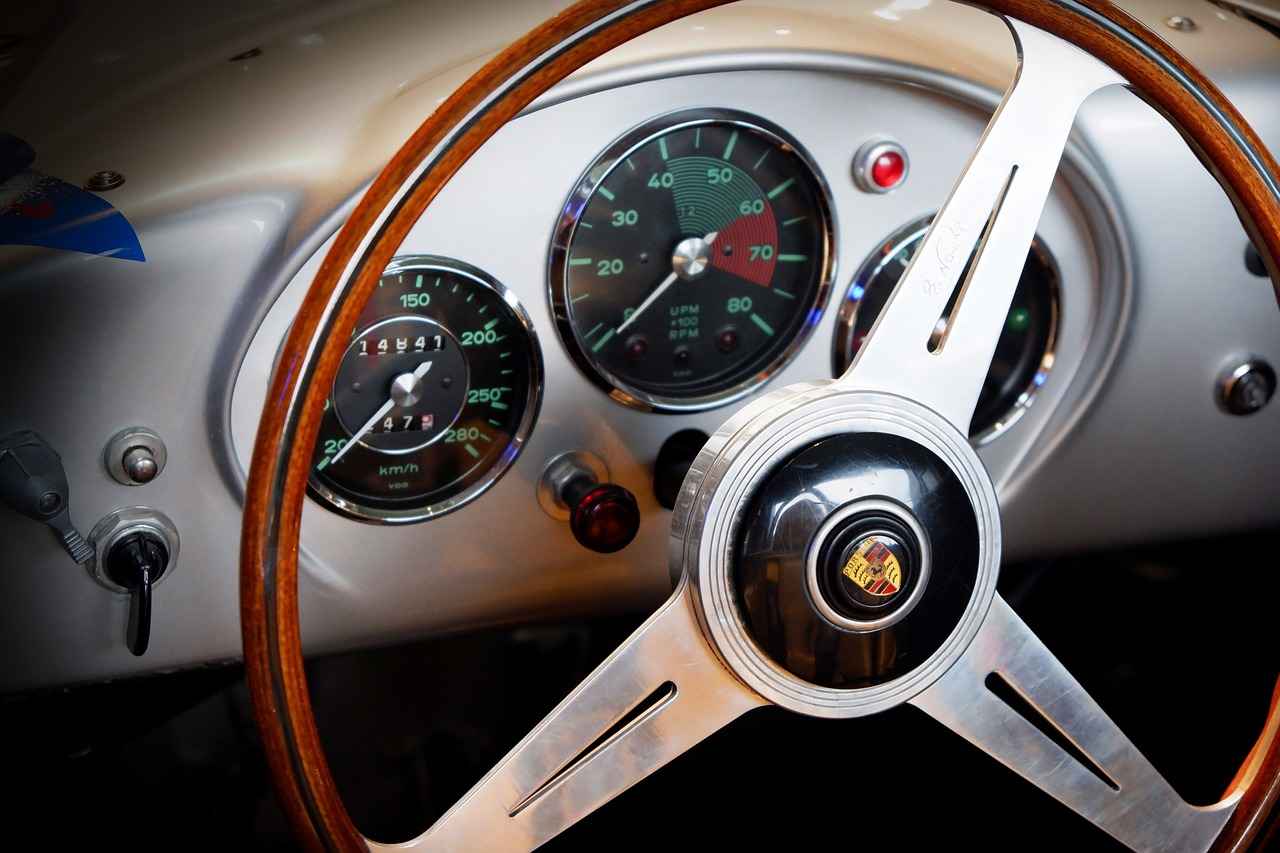
Building a Relationship with Your Restoration Shop
Establishing a good relationship with your chosen auto restoration shop is vital for a successful restoration project. This connection not only enhances your overall experience but also leads to improved communication and results. Here are some essential aspects to consider when building this relationship:
- Open Lines of Communication: Clear and open communication is the foundation of any successful partnership. When you first visit the shop, discuss your vision for the restoration. Be specific about what you want, whether it’s a full restoration or just specific repairs. The more information you provide, the better the technicians can understand your expectations and deliver results that align with your desires.
- Trust and Respect: Trusting the experts at the shop is crucial. They have the skills and experience to guide you through the restoration process. By respecting their expertise, you allow them to apply their knowledge effectively. This trust can lead to better outcomes, as technicians feel empowered to make decisions that benefit the restoration project.
- Regular Check-ins: Maintaining regular contact with the shop during the restoration process can help you stay informed about the progress. Schedule check-ins to discuss milestones and any potential issues that may arise. This proactive approach not only keeps you in the loop but also demonstrates your investment in the project.
- Feedback and Appreciation: Providing constructive feedback can help the shop improve its services. If you notice something you’re not satisfied with, discuss it openly. On the other hand, don’t forget to express appreciation for their hard work. A simple thank you can go a long way in fostering a positive relationship.
Building a strong rapport with your auto restoration shop can also lead to several benefits:
| Benefit | Description |
|---|---|
| Enhanced Quality of Work | When technicians understand your preferences and expectations, they are more likely to deliver work that meets or exceeds those standards. |
| Better Problem Resolution | A good relationship allows for open discussions about any issues that arise, leading to quicker and more effective solutions. |
| Future Collaboration | Once you establish a rapport, you may find it easier to collaborate on future projects, ensuring consistent quality and service. |
In addition to these practical strategies, consider the following tips to strengthen your relationship with the shop:
- Be Patient: Restoration projects can take time, especially if they involve extensive work. Being patient and understanding can foster goodwill between you and the shop.
- Share Your Passion: If you’re passionate about your vehicle, share that enthusiasm with the technicians. They often appreciate working on projects that excite their clients.
- Participate in the Process: If possible, visit the shop during the restoration process. This involvement can help you understand the work being done and build a stronger connection with the team.
In summary, building a relationship with your restoration shop is a multifaceted process that involves communication, trust, and mutual respect. By following these strategies, you not only enhance your overall experience but also set the stage for successful collaboration that can lead to exceptional results in your vehicle’s restoration journey.
Clear Communication
is a pivotal element in the auto restoration process. When you engage with a restoration shop, the clarity of your communication can significantly influence the outcome of your project. By articulating your vision and expectations effectively, you enable technicians to understand your needs, which in turn allows them to deliver results that align with your desires.
First and foremost, it is essential to articulate your vision clearly. This involves more than just stating what you want; it requires you to convey the emotional connection you have with your vehicle. For instance, if your classic car holds sentimental value due to family history, sharing this context can help the technicians appreciate the importance of their work. This emotional insight can motivate them to go above and beyond in their efforts, ensuring that the restoration not only meets technical standards but also resonates with your personal story.
Moreover, setting realistic expectations is crucial. Restoration projects can be complex and time-consuming, often requiring more time and resources than initially anticipated. By discussing your timeline and budget openly, you allow the shop to provide you with a more accurate assessment of what is feasible. This transparency fosters a collaborative environment where both parties can work towards a common goal, minimizing misunderstandings and frustrations.
To facilitate effective communication, consider preparing a checklist of your needs and preferences before your initial consultation. This checklist can include:
- Desired restoration level (full, partial, or cosmetic)
- Specific features or modifications you want to retain or enhance
- Preferred materials and finishes
- Budget constraints
- Timeline for completion
Having a structured list not only helps you convey your expectations clearly but also guides the technicians in understanding your priorities. Additionally, it serves as a reference point for both you and the shop throughout the restoration process, ensuring that everyone stays aligned on the project’s goals.
Another critical aspect of clear communication is feedback. Throughout the restoration process, it’s essential to maintain an open line of communication with the technicians. Regular check-ins can help you stay informed about progress and any challenges that may arise. If you notice something that doesn’t align with your vision, addressing it promptly can prevent small issues from escalating into significant problems.
Furthermore, consider using visual aids to communicate your ideas. Photos, sketches, or even examples of similar restoration projects can provide valuable context for your discussions. Visual references help bridge the gap between your expectations and the technicians’ understanding, making it easier for them to grasp your vision.
In conclusion, clear communication is not just about talking; it’s about creating a partnership with your restoration shop. By expressing your vision and expectations in a structured and transparent manner, you empower the technicians to deliver results that truly reflect your desires. Remember, the more effectively you communicate, the more likely you are to achieve a restoration that not only meets but exceeds your expectations.
Trusting the Experts
When embarking on an auto restoration project, one of the most crucial steps is selecting the right shop. After making this choice, it is essential to trust the experts you have chosen. This trust can significantly streamline the restoration process and enhance the overall outcome of your project.
After selecting a reputable auto restoration shop, it’s vital to place your confidence in their expertise. Professional restoration technicians possess extensive knowledge and experience that can lead to exceptional results. Here’s why trusting these experts is beneficial:
- Expert Knowledge: Restoration professionals have honed their skills over years of practice. They understand the intricacies of various vehicle models and can identify the best restoration techniques suited for your specific car.
- Access to Quality Parts: Experienced shops often have established relationships with suppliers, allowing them to source high-quality parts that may not be readily available to the average consumer. This access can significantly improve the quality of the restoration.
- Attention to Detail: Restoration is an art that requires meticulous attention to detail. Trusting experts means you can rely on their ability to notice and address issues that may be overlooked by those less experienced.
Moreover, allowing professionals to apply their expertise can lead to the most favorable outcomes. Here are some key aspects to consider when trusting your restoration shop:
| Aspect | Benefits of Trusting Experts |
|---|---|
| Assessment and Evaluation | Experts conduct thorough assessments to determine the best course of action, ensuring that your vehicle receives the appropriate care. |
| Project Management | Experienced technicians manage the restoration process efficiently, helping to keep the project on schedule and within budget. |
| Problem Solving | Professionals can anticipate potential issues and provide solutions, minimizing delays and unexpected costs. |
Trusting the experts also fosters a collaborative relationship. When you communicate openly with your restoration shop, you can share your vision and expectations. This dialogue is essential for ensuring that the final product aligns with your desires. Here are some tips for effective communication:
- Be Clear About Your Vision: Articulate what you want from the restoration. Share images or examples of similar vehicles to help convey your ideas.
- Ask Questions: Don’t hesitate to inquire about the restoration process, materials used, and timelines. A trustworthy shop will welcome your questions and provide thorough answers.
- Stay Informed: Request regular updates on the progress of your project. This keeps you engaged and allows you to address any concerns promptly.
Ultimately, trusting the experts in your chosen auto restoration shop can lead to a smoother process and exceptional results. By allowing them to apply their knowledge and skills, you can focus on the excitement of seeing your vehicle restored to its former glory. Remember, the relationship you build with your restoration team can significantly impact the outcome, so invest the time to nurture this trust and communication.














